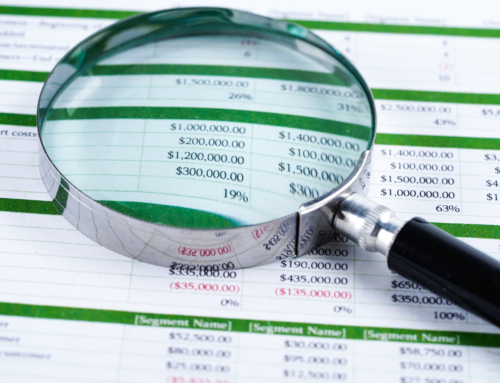Investing in real estate has been a common way to make money throughout history. In today’s world, real estate investments, in the form of flipping houses or holding property long-term, are especially popular. Programs like Fixer Upper and House Hunters show the profits that are available to those who are willing to take the risk of buying and selling a property. If you are willing to take that risk and make a profit on a real estate investment, what does this mean for your taxes?
We’ll discuss two common real estate investment scenarios, where the property is not the primary residence of the investor. Let’s dive into these real estate investments and their tax effects:
Long-Term Capital Gains
The first scenario is the most favorable: You purchase a real estate property and hold it long-term (more than one year) and sell it for a personal gain. This gain will be treated as a long-term capital gain, which is taxed at a more favorable rate than short-term (less than a year) capital gains or ordinary gains. If you plan on purchasing another piece of real estate property after selling long-term property, you have the option to make a like-kind exchange (Section 1031 exchange).
Like-kind exchanges, which allow you to defer any long-term capital gains, are now only available on real property that is held for investment. Generally, for a property to qualify for a like-kind exchange, it must be held as an investment for longer than one year. This allows you to reinvest the gain from the sale of the first property into a new property without being taxed on the capital gain in the period in which you’ve sold the first property. There are some timing regulations that you must follow in order for your replacement property to qualify as a like-kind exchange:
- You must designate three potential replacement properties in writing within 45 days of the sale of the first property
- You must close on one of those new properties within 180 days of the sale of the first property.
- You must also work with an intermediary so you do not personally receive any cash from the sale of the first property.
You can continue to do this with real estate properties until you are no longer interested in investing in real estate properties.
Special Note on Long-Term Capital Loss: If you were to sell a long-term real estate property at a loss this loss would be characterized as a long-term capital loss. This means that you would first offset this capital loss against any other capital gains you’ve incurred, and then you would carry the remaining loss forward indefinitely. You can offset ordinary income by an amount of $3,000 of this carryover loss each year.
Short-Term Capital Gains
The second scenario is less favorable. In this scenario, you purchase a real estate property that you hold short-term (a period less than a year) and sell it at a gain. This gain will be a short-term capital gain, which is taxed at less favorable ordinary income tax rates and could be much higher than long-term capital gains rates depending on the amount of the gain. Also, this scenario would not qualify for a like-kind exchange if the investor is interested in purchasing another piece of real estate property with the gain. It does not qualify, because since the property is held short-term, it is not considered as property held for investment. This means that investors who buy houses with the intention of flipping them for a profit in a time period of less than a year will be taxed at less favorable rates on any gain they receive from selling those houses.
Special Note on Short-Term Capital Loss: If you were to sell a short-term real estate property at a loss, it would be characterized as a short-term capital loss, meaning you would first offset this capital loss against any other capital gains you’ve incurred, and then you would carry the remaining loss forward indefinitely. You can offset ordinary income by an amount of $3,000 of this carryover loss each year.
Real estate investments and taxes can be complicated. Once you’ve decided you are willing to take on the risks of investing in real estate, it is best to consult a CPA to ensure that you are using the best tax strategies so that you are not hit with an unexpected tax bill.
At Abacus CPAs, our focus is you! We believe that our employees and clients deserve to interact in an environment that fosters growth, trust, and confidence. Our team focuses on tax, accounting, audit, and business consulting to partner with you and your business. Abacus professionals provide leadership by relentlessly pursuing the best guidance possible so those we serve can make smarter decisions.
You can learn more about the topic in this blog by contacting us. We are here and happy to help! Call us today at 417-823-7171, find us on Facebook, LinkedIn, and Twitter, or visit our website www.abacuscpas.com to learn more.









